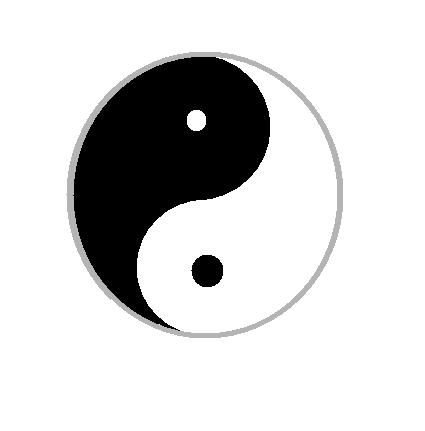Laozi's Dao De Jing 71-75 (老子道德經 71-75) from Administrator's blog

It is the way of Heaven not to strive, and yet it skillfully overcomes; not to speak, and yet it is skillful in obtaining a reply; does not call, and yet men come to it of themselves. Its demonstrations are quiet, and yet its plans are skillful and effective. The meshes of the net of Heaven are large; far apart, but letting nothing escape.
第七十一章
知,不知,上矣﹔不知,知,病也。聖人不病,以其病病。夫唯病病,是 以不病。
Chapter 71
1. To know and yet (think) we do not know is the highest (attainment); not to know (and yet think) we do know is a disease. 2. It is simply by being pained at (the thought of) having this disease that we are preserved from it. The sage has not the disease. He knows the pain that would be inseparable from it, and therefore he does not have it.
第七十二章
民不畏威,則大威至。無狎其所居,無厭其所生。夫唯不厭,是以不厭。 是以聖人自知不自見﹔自愛不自貴。故去彼取此。
Chapter 72
1. When the people do not fear what they ought to fear, that which is their great dread will come on them. 2. Let them not thoughtlessly indulge themselves in their ordinary life; let them not act as if weary of what that life depends on. 3. It is by avoiding such indulgence that such weariness does not arise. 4. Therefore the sage knows (these things) of himself, but does not parade (his knowledge); loves, but does not (appear to set a) value on, himself. And thus he puts the latter alternative away and makes choice of the former.
第七十三章
勇于敢則殺,勇于不敢則活。此兩者,或利或害。天之所惡,孰知其故? 是以聖人猶難之。天之道,不爭而善勝,不言而善應,不召而自來,繕然 而善謀。天網恢恢,疏而不失。
Chapter 73
1. He whose boldness appears in his daring (to do wrong, in defiance of the laws) is put to death; he whose boldness appears in his not daring (to do so) lives on. Of these two cases the one appears to be advantageous, and the other to be injurious. But When Heaven's anger smites a man, Who the cause shall truly scan? On this account the sage feels a difficulty (as to what to do in the former case).
2. It is the way of Heaven not to strive, and yet it skilfully overcomes; not to speak, and yet it is skilful in obtaining a reply; does not call, and yet men come to it of themselves. Its demonstrations are quiet, and yet its plans are skilful and effective. The meshes of the net of Heaven are large; far apart, but letting nothing escape.
第七十四章
民不畏死,奈何以死懼之?若使民常畏死,而為奇者,吾得執而殺之,孰 敢?常有司殺者殺。夫代司殺者殺,是謂代大匠斲,夫代大匠斲者,希有 不傷其手矣。
Chapter 74
1. The people do not fear death; to what purpose is it to (try to) frighten them with death? If the people were always in awe of death, and I could always seize those who do wrong, and put them to death, who would dare to do wrong?
2. There is always One who presides over the infliction death. He who would inflict death in the room of him who so presides over it may be described as hewing wood instead of a great carpenter. Seldom is it that he who undertakes the hewing, instead of the great carpenter, does not cut his own hands!
第七十五章
民之飢,以其上食稅之多,是以飢。民之難治,以其上之有為,是以難治 。民之輕死,以其上求生之厚,是以輕死。夫唯無以生為者,是賢于貴生 。
Chapter 75
1. The people suffer from famine because of the multitude of taxes consumed by their superiors. It is through this that they suffer famine.
2. The people are difficult to govern because of the (excessive) agency of their superiors (in governing them). It is through this that they are difficult to govern.
3. The people make light of dying because of the greatness of their labours in seeking for the means of living. It is this which makes them think light of dying. Thus it is that to leave the subject of living altogether out of view is better than to set a high value on it.

The Wall